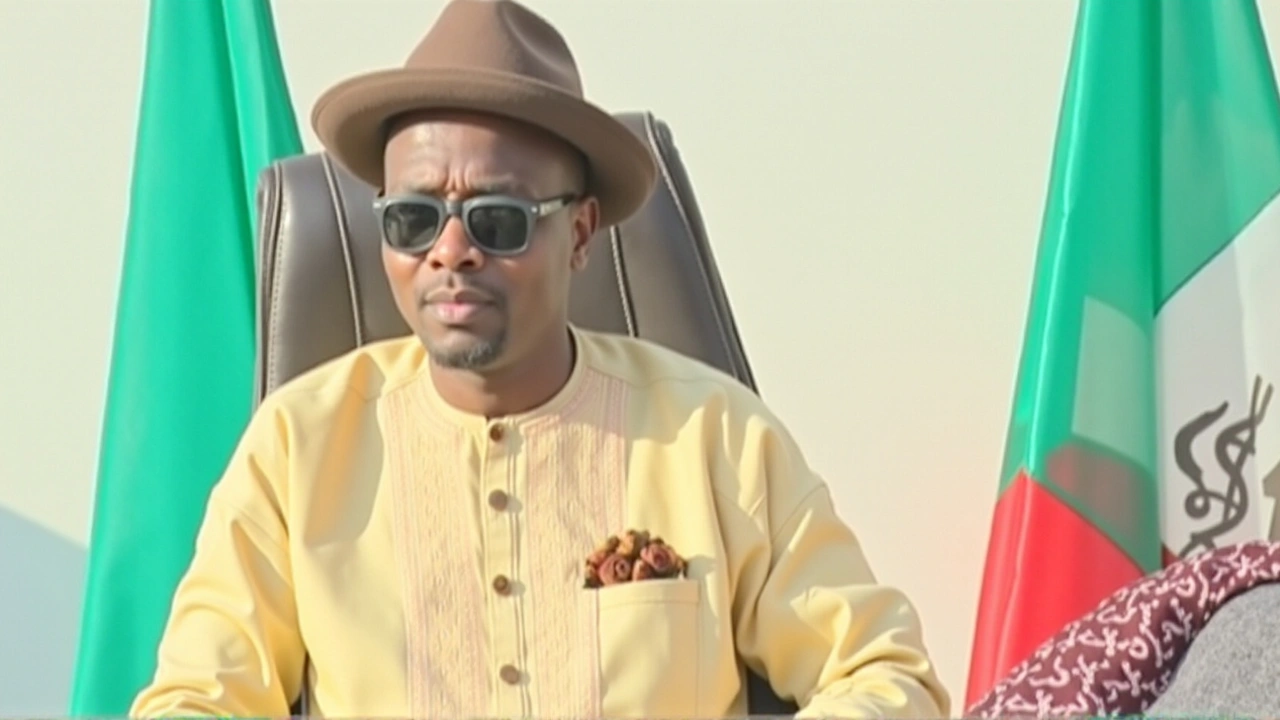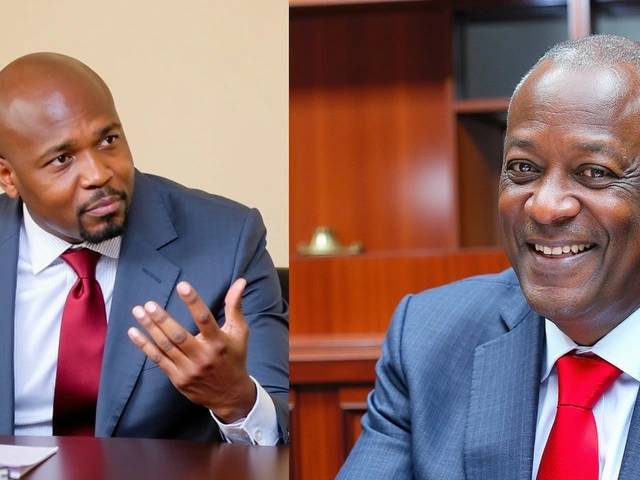Rivers State Political Drama: Allegations Against Governor Siminalayi Fubara
The political climate in Rivers State has taken a dramatic turn as Tony Okocha, the embattled Caretaker Committee Chairman of the All Progressives Congress (APC), steps into the spotlight. Okocha has publicly accused the state's governor, Siminalayi Fubara, of blatantly disregarding a court order. This order was intended to pause the preparations for upcoming local government council elections, scheduled for October 5, 2024. The allegations raise concerns over respect for the rule of law and the potential implications for the integrity of democratic processes in the region.
A Dispute Over Election Proceedings
The controversy stems from a recent judgment handed down by Justice Peter Lifu of the Federal High Court in Abuja. The decision unequivocally bars the Rivers State Independent Electoral Commission (RSIEC) from conducting the proposed elections. Furthermore, it restrains the Independent National Electoral Commission (INEC) from releasing the voter register to RSIEC for this purpose. In addition, the Nigerian Police and the Department of State Security have been explicitly instructed not to provide the necessary security support for the elections.
Despite this clear directive, the APC has voiced its dismay at what it perceives as the state government’s defiance of the court's ruling. Tony Okocha and other APC leaders assert their commitment to compliance with the law, emphasizing that they will not partake in an electoral process they view as illegitimate. They argue that Governor Fubara's alleged actions smack of impunity and undermine legal frameworks that are designed to ensure fairness and transparency in the electoral process.
The APC's Stand on Legal Compliance
The APC, under Okocha's leadership, has pledged to remain firmly grounded within the ambit of the law. Okocha reiterates that the party upholds its reputation as law-abiding, stressing that any participation in the elections under the current circumstances would compromise this commitment. The commitment to lawfulness is a cornerstone of the party's strategy as they challenge what they consider a flawed and unlawful electoral process.
The problem is further compounded by RSIEC’s own past declarations where it cited logistic challenges in organizing the elections. RSIEC even went as far as to request assistance to enable them to conduct the polls. However, the APC contends that any steps taken towards the elections currently are unauthorized, describing both the electoral body and the state government’s actions as illegal.
A Pattern of Disobedience?
The APC's Publicity Secretary, Chibuike Ikenga, has criticized both RSIEC and the Rivers State government for what he describes as a consistent pattern of court order violations. These alleged actions, according to Ikenga, have broader repercussions that could potentially jeopardize the credibility of not only the Rivers State governance but the political climate of Nigeria as a whole.
Such a disregard for the judiciary’s rulings fosters an atmosphere of uncertainty, particularly when the principles of democracy and effective governance hinge on the adherence to legal precedents. Ikenga and his party warn that this trajectory could lead to instability, pushing stakeholders at all levels to reflect on the ongoing developments.
Tensions and Implications
This case underscores a broader narrative of political tension and governance challenges in Nigeria. The refusal to honor court judgments frequently triggers unrest and public disillusionment with political entities. The tensions witnessed in Rivers State are a stark reflection of these larger issues, as opposition parties and ruling powers continuously jostle over the reins of authority.
As the scheduled election date approaches, signs of resolution appear elusive. It remains to be seen whether legal interventions will be honored or if political maneuvers will pave another path, with implications not only for the state of Rivers but for Nigeria’s democratic ethos.
Conclusion
The accusations of court order violations levelled against Governor Siminalayi Fubara and the ongoing deliberations around the scheduled elections present a critical test for governance and legal compliance within Rivers State. While the APC, led by Tony Okocha, remains steadfast in its legal adherence, the situation calls for vigilance and accountability from all political actors. It is a chapter in Rivers State’s political saga that highlights the intricate interplay between the law and power, with significant implications for the future of its democracy.






Write a comment